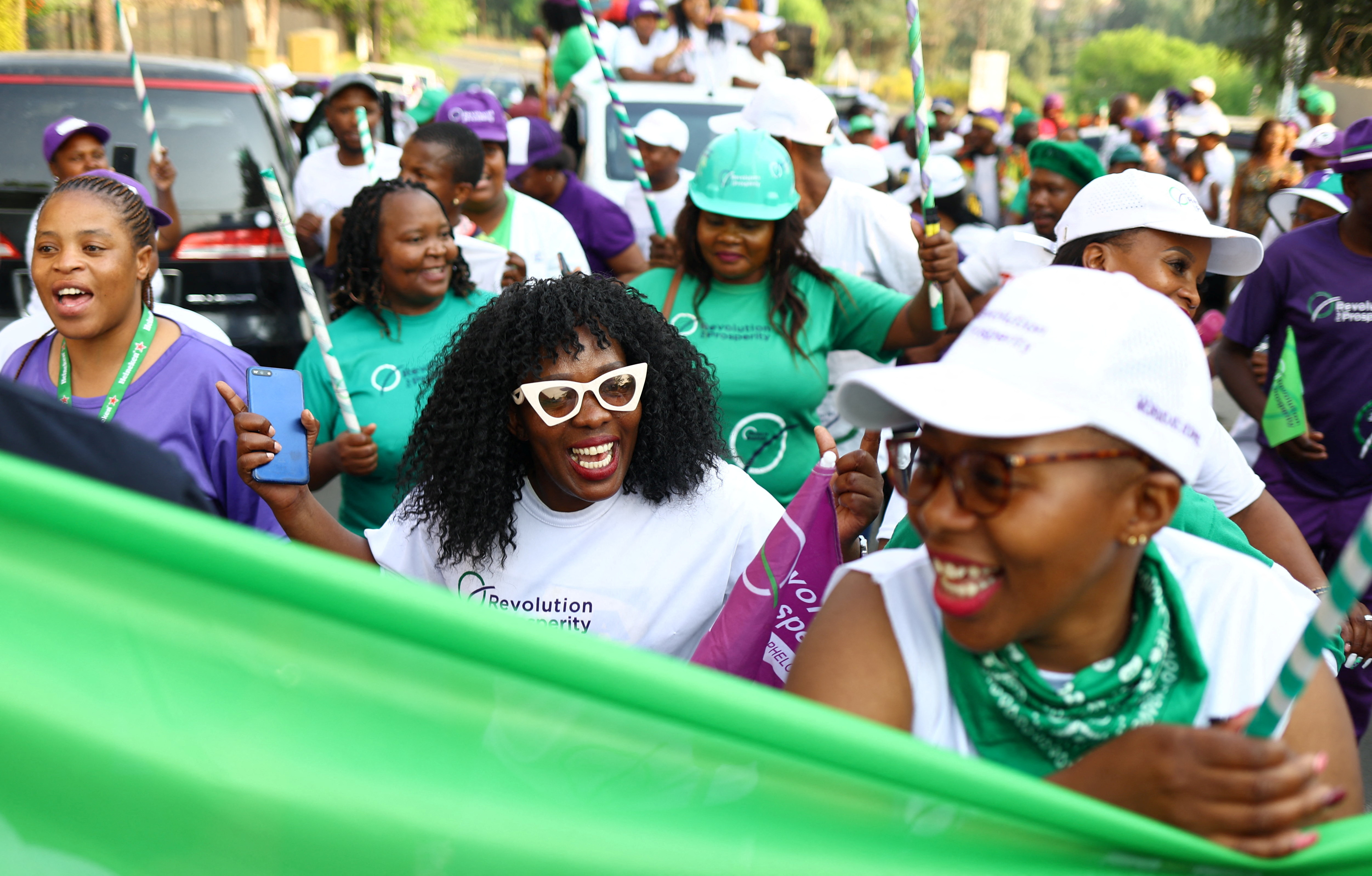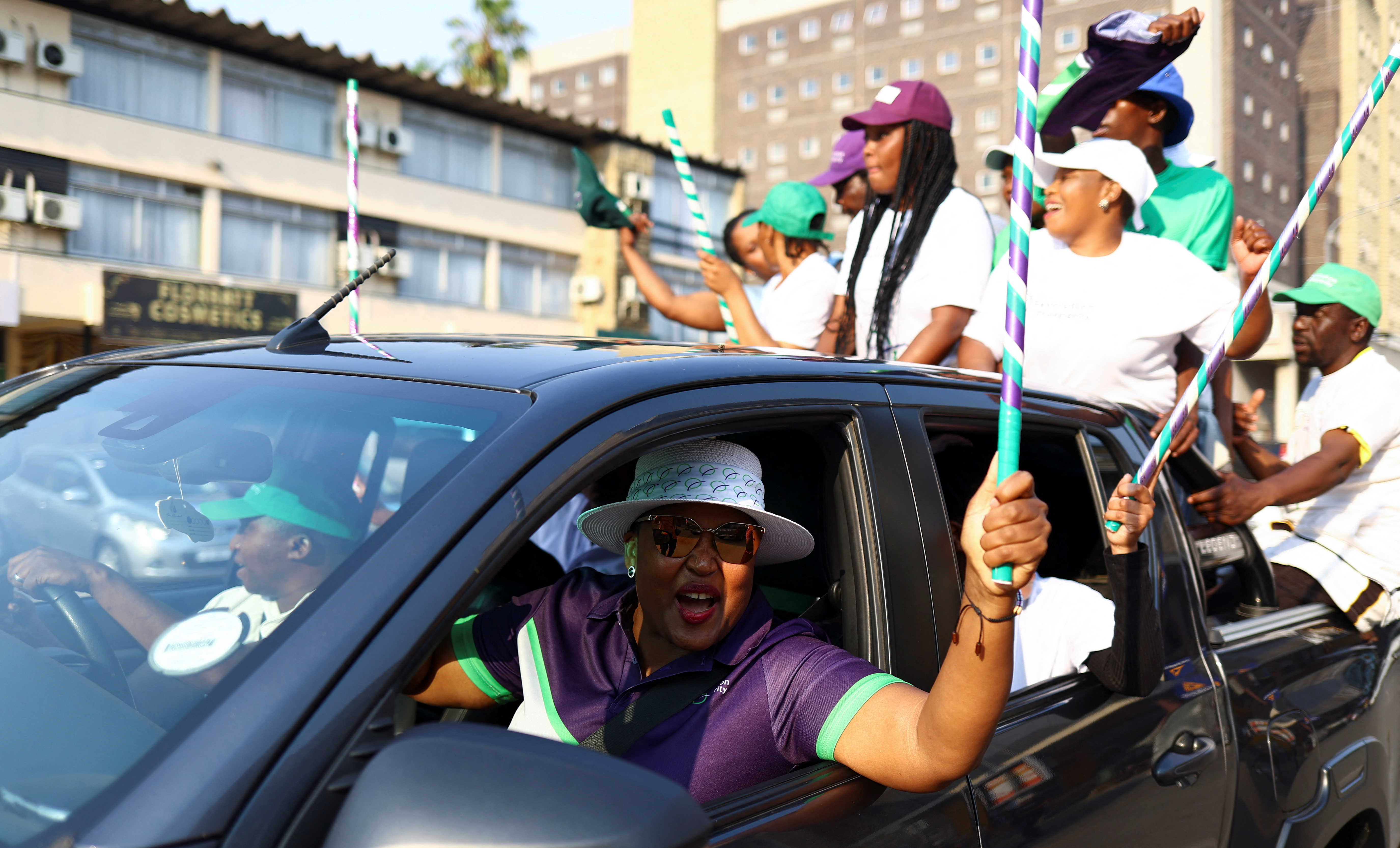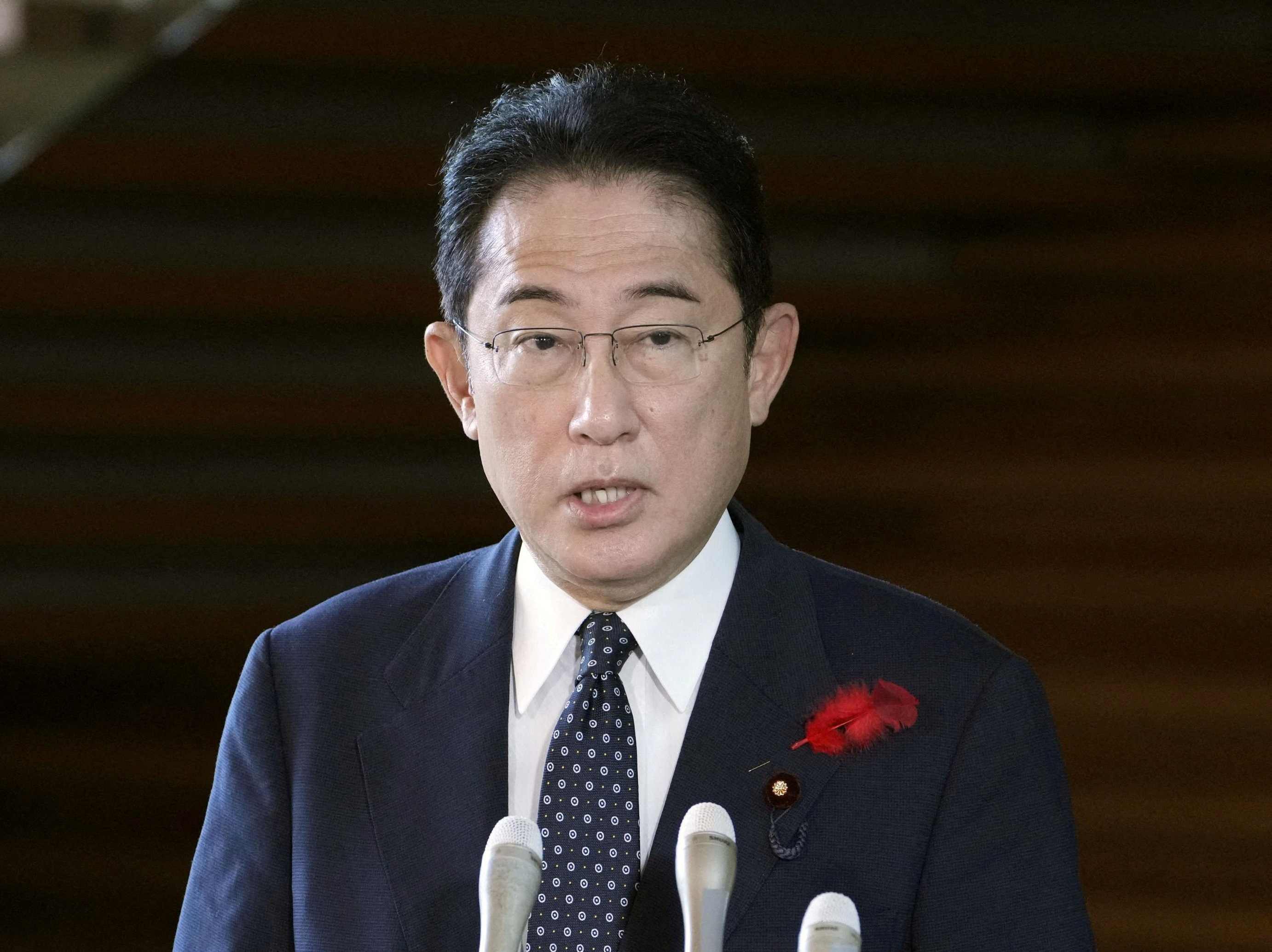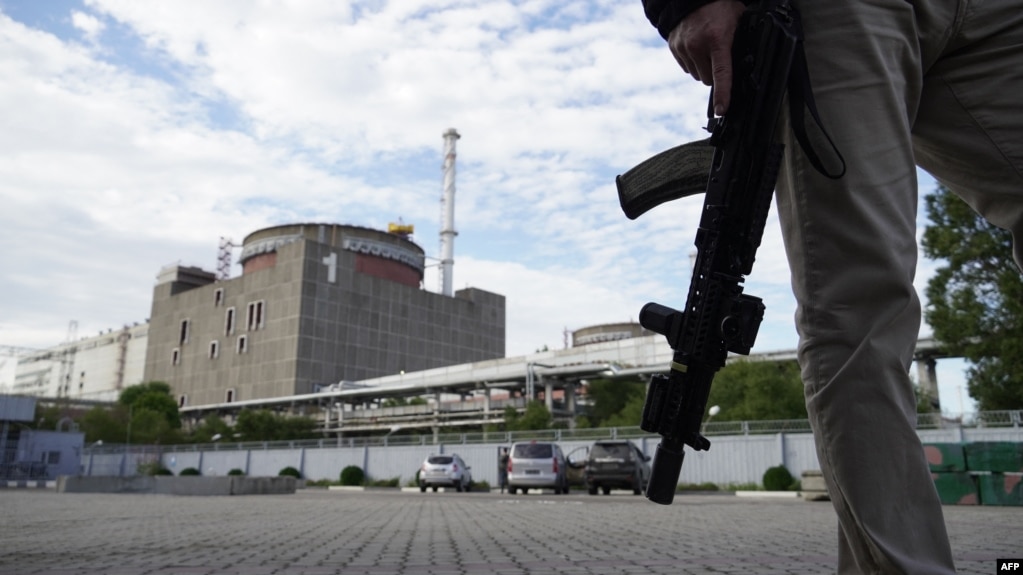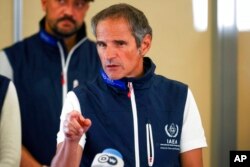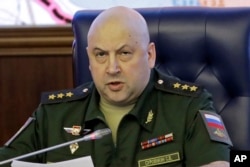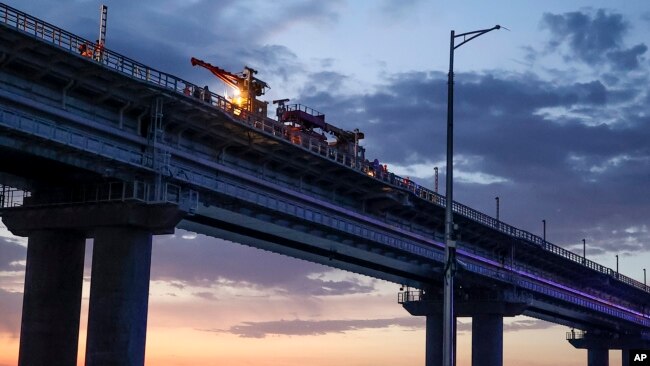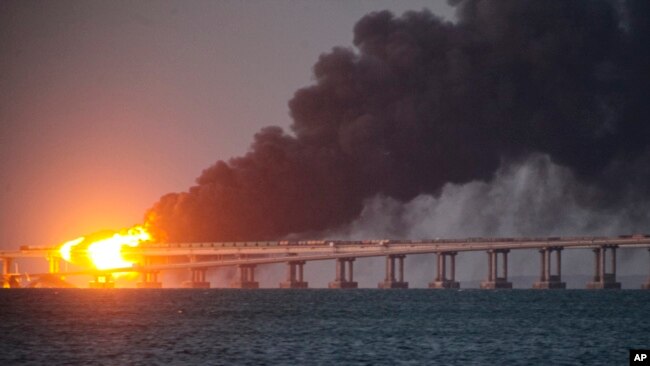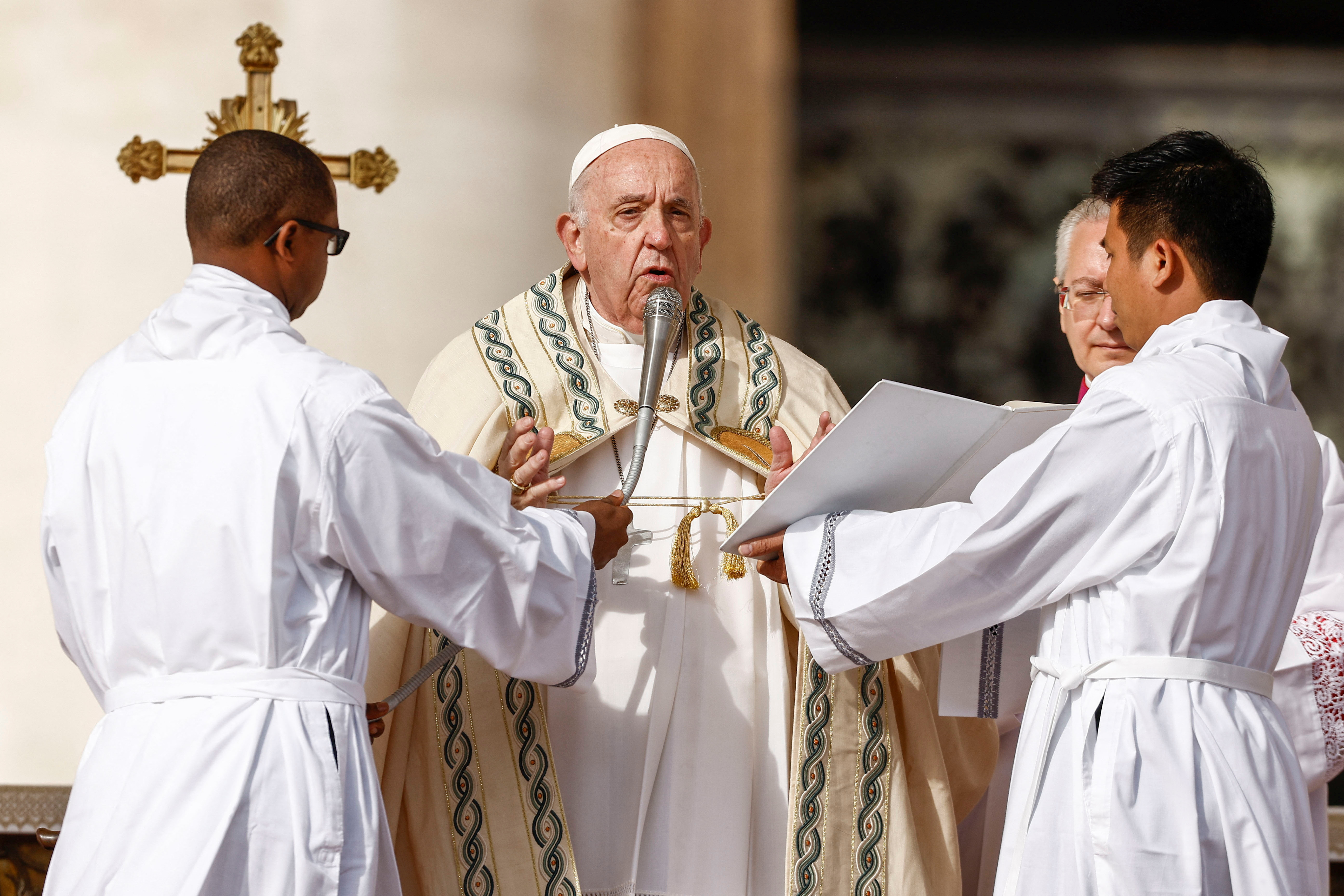Sun, October 9, 2022

WATCH: Iran state TV hacked with image of supreme leader in crosshairs
In other anti-regime messages, activists have spray-painted "Death to Khamenei" and "The Police are the Murderers of the People" on public billboards in Tehran.
"The blood of our youths is on your hands," read an on-screen message that flashed up briefly during the TV broadcast Saturday evening, as street protests sparked by the death of Mahsa Amini, 22, again rocked Tehran and other cities.
"Police forces used tear gas to disperse the crowds in dozens of locations in Tehran," state news agency IRNA reported, adding the demonstrators "chanted slogans and set fire to and damaged public property, including a police booth".

Anger has flared since the death of Amini on September 16, three days after the young Kurdish woman was arrested by the notorious morality police for an alleged breach of the Islamic republic's strict dress code for women.
"Join us and rise up," read another message in the TV hack claimed by the group Edalat-e Ali (Ali's Justice).
It also posted pictures of Amini and three other women killed in the crackdown that has claimed at least 95 lives according to Norway-based group Iran Human Rights.
Another 90 people were killed in Iran's far southeast, in unrest on September 30 sparked by the alleged rape of a teenage girl by a police chief in Sistan-Baluchestan province, said IHR, citing the UK-based Baluch Activists Campaign.
One Islamic Revolutionary Guards Corps member was killed Saturday in Sanandaj, Kurdistan province, and a member of the Guards' Basij paramilitary force died in Tehran from "a serious head injury following an armed attack by a mob," IRNA said -- in killings that raised the death toll among security forces to 14.
- 'So many protests' -
Iran has been torn by the biggest wave of social unrest in almost three years, which has seen protesters, including university students and even young schoolgirls chant "Woman, Life, Freedom".
"Videos coming out from Tehran indicate that there are so many protests, in every corner of the city, in small and big numbers," said US-based campaigner and journalist Omid Memarian on Twitter.

In Amini's hometown Saqez, Kurdistan, schoolgirls chanted and marched down a street swinging their hijab headscarves in the air, in videos the Hengaw rights group said were recorded on Saturday.
Gruesome footage has emerged from the state's often bloody response, spread online despite widespread internet outages and blocks on all the major social media platforms.
One video shows a man who was shot dead at the wheel of his car in Sanandaj, Kurdistan's capital, where the province's police chief, Ali Azadi, later charged he was "killed by anti-revolutionary forces".

Angry men then appear to take revenge on a member of the feared Basij militia, swarming him and beating him badly, in another widely shared video.
Yet another video clip shows a young woman said to have been shot dead in Mashhad in the country's northeast.
Many on social media said it evoked footage of Neda Agha Soltan, a young woman who became an enduring symbol of the Iranian opposition after she was shot dead at protests in 2009.
- 'Not afraid anymore' -

In the face of the violence and the online restrictions, protesters have adopted new tactics to spread their message of resistance in public spaces.
"We are not afraid anymore. We will fight," read one large banner placed on an overpass of Tehran's Modares highway, seen in images verified by AFP.
In other footage, a man with a spray can is seen altering the wording of a government billboard on the same highway from "The Police are the Servants of the People" to "The Police are the Murderers of the People".
Several water features in the Iranian capital were said to have been coloured blood-red, but the head of city’s municipality parks organisation Ali Mohamad Mokhtari said: "This information is completely false and there isn't any change in the colors of fountains in Tehran".
Iran has accused outside forces of stirring up the protests, as solidarity protests have been held in scores of cities worldwide. The United States, European Union and other governments have imposed new sanctions on Iran.
On Amini's death, Iran said Friday that a forensic investigation had found that she died as a result of a long-standing medical condition, rather than of blows to the head as claimed by activists.
Amini's father told London-based Iran International that he rejected the official report: "I saw with my own eyes that blood had come from Mahsa's ears and the back of her neck."
burs/sjw-fz/jkb
Protests intensified when Iran claimed Amini died of a longstanding illness rather than 'blows' to the head. Her family rejected the official report.

Schoolgirls chanted slogans and workers clashed violently with security forces as Iran protests over the death of Mahsa Amini entered the fourth week.
Anger flared after the 22-year-old Iranian Kurd’s death on 16 September, three days after her arrest in Tehran by the notorious morality police for an alleged breach of the Islamic republic’s strict dress code for women.
Mahsa Amini protests
Iran said on Friday an investigation found Amini had died of a longstanding illness rather than “blows” to the head, despite her family reportedly saying she had previously been healthy.
Mahsa Amini’s father told London-based Iran International that he rejected the official report.
“I saw with my own eyes that blood had come from Mahsa’s ears and back of her neck,” the outlet quoted him as saying Saturday.
‘Woman, life, freedom’
The women-led protests continued even as ultraconservative President Ebrahim Raisi posed for a group photograph with students at Tehran’s all-female Al-Zahra University to mark the new academic year.
Young women on the same campus were seen shouting “Death to the oppressor”, said the Oslo-based group Iran Human Rights (IHR).
In Amini’s hometown Saqez, in Kurdistan province, schoolgirls chanted “Woman, life, freedom” and marched down a street swinging headscarves in the air, in videos the Hengaw rights group said were recorded on Saturday.
Violence ensues
Gruesome videos were widely shared online of a man who was shot dead while sitting at the wheel of his car in Sanandaj, Kurdistan’s capital.
The province’s police chief, Ali Azadi, said he was “killed by anti-revolutionary forces”.
ALSO READ: Iran supreme leader blames US, Israel for Mahsa Amini protests
Angry men appeared to take revenge on a member of the feared Basij militia in Sanandaj, swarming around him and beating him badly, in a widely shared video.
Internet monitor Netblocks reported outages in Sanandaj, and national mobile network disruptions.
Another shocking video shows a young woman said to have been shot dead in Mashhad. Many on social media compared it to footage of Neda Agha Soltan, a young woman who became an enduring symbol of the opposition after being shot dead at protests in 2009.
Despite internet restrictions, protesters have adopted new tactics to get their message across.
“We are not afraid anymore. We will fight,” said a large banner placed on an overpass of Tehran’s Modares highway, according to online images verified by AFP.
In other footage, a man is seen altering the wording of a large government billboard on the same highway from “The police are the servants of the people” to “The police are the murderers of the people”.
The ISNA news agency reported a heavy security presence in the capital, especially near universities. It said “scattered and limited gatherings” were held in Tehran during which “some demonstrators destroyed public property”.
Street protests were also reported in Isfahan, Karaj, Shiraz and Tabriz, among other cities. US-based campaigner and journalist Omid Memarian tweeted:
“Videos coming out from Tehran indicate that there are so many protests, in every corner of the city, in small and big numbers.”
ALSO READ: Biden warns Iran to face ‘costs’ for crackdown on Amini protests
Hengaw, a Norway-based Kurdish rights group, said “widespread strikes” took place in Saqez, Sanandaj and Divandarreh, in Kurdistan province, as well as Mahabad in West Azerbaijan.
‘Blind eye’
IHR said at least 95 protesters have been killed in the crackdown, which has fuelled tensions between Iran and the West, especially its arch-enemy the United States.
Citing the UK-based Baluch Activists Campaign, IHR said another 90 people had been killed in Sistan-Baluchestan province after accusations that a regional police chief had raped a teenage girl triggered unrest there.
Raisi – who in July called for the mobilisation of all state institutions to enforce hijab rules – met Saturday evening with the judiciary chief and the parliament speaker, state news agency IRNA reported.
“They stressed that Iranian society now needs unity of all strata regardless of language, religion and ethnicity to overcome the hostility and divisiveness against Iran,” IRNA said.
International conflict
Iran has repeatedly accused outside forces of stirring up the protests, and last week announced that nine foreign nationals – including from France, Germany, Italy, Poland and the Netherlands – had been arrested.
On Friday, France advised its nationals visiting Iran to “leave the country as soon as possible”, citing the risk of arbitrary detention.
The Netherlands advised its citizens to avoid travelling to Iran or to leave when they can do so safely.
Nazanin Zaghari-Ratcliffe, a British-Iranian charity worker held in Tehran for six years until her release in March, called on the UK government to act over Iran’s rights abuses.
“We cannot be indifferent about what is happening in Iran,” she told Sky News. “And I think we have to hold Iran accountable.”
NOW READ: Iran targets celebrities, journalists over Mahsa Amini protests
© Agence France-Presse
Iran protests: Germany's top diplomat says regime on 'wrong side of history'
German Foreign Minister Annalena Baerbock said the EU would impose new sanctions on Iranians responsible for the "brutal repression" of protesters.

The protests in Iran have led to marches in solidarity around the world
German Foreign Minister Annalena Baerbock said Sunday that she would ensure the European Union imposes entry bans on individuals who are responsible for cracking down on protesters in Iran.
Baerbock made the comments to the Bild am Sonntag newspaper, adding the EU would also freeze their assets in the 27-member bloc.
Baerbock criticized Iranian authorities, saying, "Anyone who beats up women and girls in the streets, abducts people who want nothing more to live freely … is on the wrong side of history."
Baerbock had earlier called on the Iranian leadership to pay heed to protesters' demands since they were demanding basic rights.
Iranian authorities have cracked down on the protests, now in their fourth week, with human rights groups estimating that 185 people have been killed and hundreds arrested.
Iran holds crisis meeting
Meanwhile, Iran's political leaders held a crisis meeting Sunday as protests against the death of Mahsa Amini gathered momentum.
Amini, a 22-year-old Kurdish-Iranian woman, died in police custody in September after being detained by Iran's "morality police" for not wearing her hijab (or headscarves) properly.
Her death has sparked an unprecedented wave of protests across cities in Iran, with women cutting their hair and burning their hijabs to protest the hijab law, which requires women to cover their hair and wear loose-fitting long clothes.
Iranian President Ebrahim Raisi, the speaker of the parliament and the head of judiciary attended the meeting on Sunday, Iran's presidential office said.
2 killed as protests continue
The crisis meeting came after at least two protesters were killed Saturday in a majority Kurdish city in northern Iran, according to reports by French-based Kurdistan Human Rights Network and the Norwegian-registered Hengaw Organization for Human Rights.
"Security forces are shooting at the protesters in Sanandaj and Saqqez," Hengaw said on Saturday, adding that riot police were also using tear gas to disperse protesters.
Protests have flared across cities in Iran, with demonstrators often clashing with security forces in the last few weeks. At least 185 people, including several children, have been killed during the unrest, the Iran Human Rights, a Norway-based group, said Sunday.
Hackers briefly take over 9 p.m. news
Additionally, Iran's state-run broadcaster was hacked Saturday night.
A mask first appeared on the screen, followed by a photo of Ayatollah Khamenei with flames around him.
"The blood of our youths is on your hands," read a message on the screen.
The group that claimed it, Edalat-e Ali (Ali's Justice), also added a message on the top of the screen: "Join us and rise up."
They added an image of Amini and three others who had been killed in the unrest over the last few weeks.
Questions over Amini's cause of death
A state coroner's report earlier this week said Amini's death was not caused by any blow to the head and limbs. It did not say whether she suffered any injuries.
The report linked Amini's death to pre-existing medical conditions, according to state media reports.
Amini's father said she suffered bruises to her legs and has held the police responsible for her death.
rm/wd (Reuters, AFP, dpa)
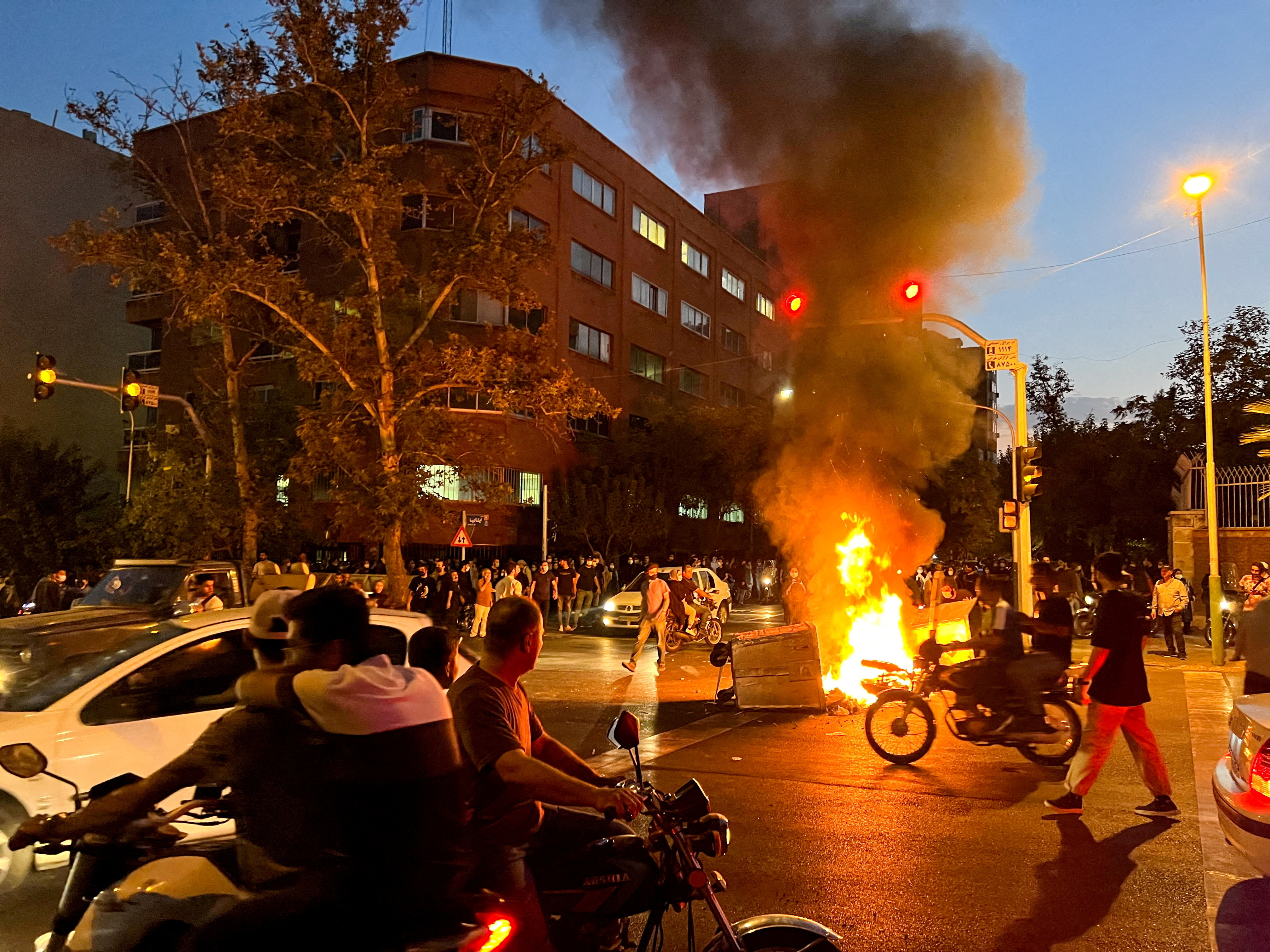
DUBAI, Oct 9 (Reuters) - Protests ignited by the death of a young woman in police custody continued across Iran on Sunday in defiance of a crackdown by the authorities, as a human rights group said at least 185 people, including children, had been killed in demonstrations.
Anti-government protests that began on Sept. 17 at the funeral of 22-year-old Mahsa Amini in her Kurdish town of Saqez, have turned into the biggest challenge to Iran's clerical leaders in years, with protesters calling for the downfall of Supreme Leader Ayatollah Ali Khamenei.
"At least 185 people, including at least 19 children, have been killed in the nationwide protests across Iran. The highest number of killings occurred in Sistan and Baluchistan province with half the recorded number," the Norway-based Iran Human Rights said on Saturday.
Authorities have described the protests as a plot by Iran's foes, including the United States. They have accused armed dissidents amongst others of violence that has reportedly left at least 20 members of the security forces dead.
Videos shared on social media showed protests in dozens of cities across Iran early on Sunday with hundreds of high school girls and university students participating despite the use of tear gas, clubs, and in many cases live ammunition by the security forces, rights groups said.
The Iranian authorities have denied that live bullets have been used.
'DON'T HIT MY WIFE, SHE IS PREGNANT'
A video posted on Twitter by the widely-followed activist 1500tasvir showed security forces armed with clubs attacking students at a high school in Tehran.
In another video, a man shouted "don't hit my wife, she is pregnant," while trying to protect her from riot police in the city of Rafsanjan on Saturday.
A video shared by Twitter account Mamlekate, which has more than 150,000 followers, showed security forces chasing dozens of school girls in the city of Bandar Abbas. Social media posts said shops were closed in several cities after activists called for a mass strike.
Reuters could not verify the videos and posts. Details of casualties have trickled out slowly, partly because of internet restrictions imposed by the authorities.
Meanwhile, the semi-official Tasnim news agency quoted deputy interior minister warning of harsh sentences for those it referred to as rioters.
Amini was arrested in Tehran on Sept. 13 for wearing "inappropriate attire". She died three days later at a Tehran hospital.
A state coroner's report on Saturday said Amini had died from pre-existing medical conditions. Her father has held the police responsible for her death with the family lawyer saying "respectable doctors" believe she was beaten while in custody.
While the United States and Canada have already placed sanctions on Iranian authorities, the European Union was considering imposing asset freezes and travel bans on Iranian officials.
"Those who beat up (Iranian) women and girls on the street, who abduct, arbitrarily imprison and condemn to death people who want nothing other than to live free - they stand on the wrong side of history," German Foreign Minister Annalena Baerbock told Bild am Sonntag newspaper on Sunday.




